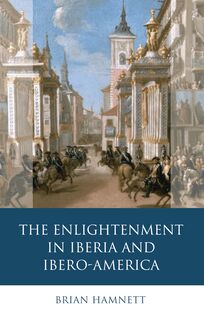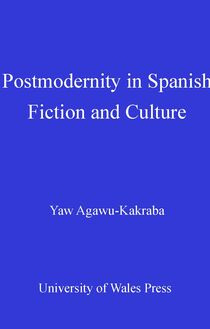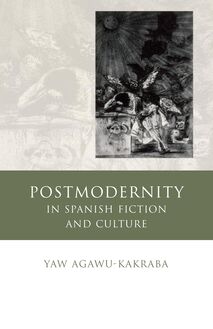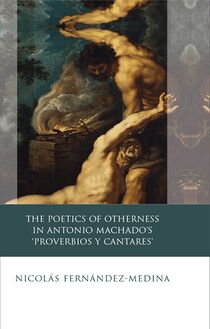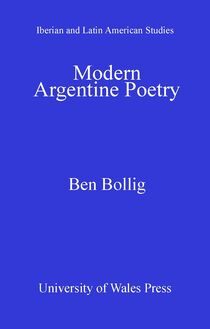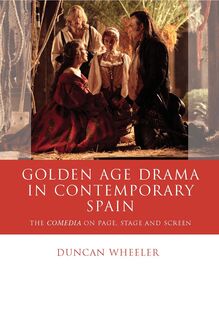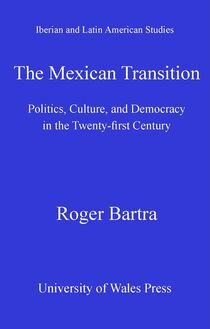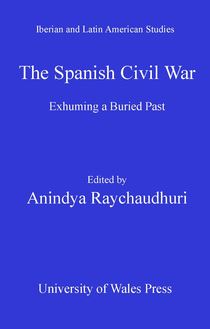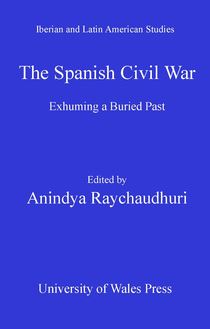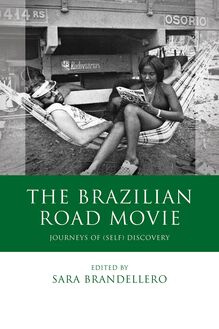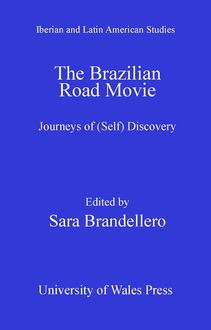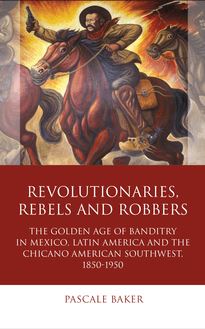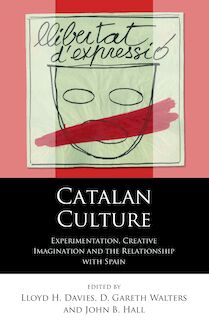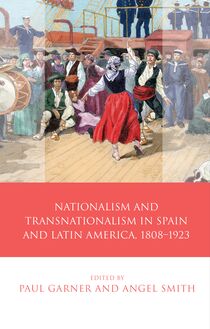-
 Univers
Univers
-
 Ebooks
Ebooks
-
 Livres audio
Livres audio
-
 Presse
Presse
-
 Podcasts
Podcasts
-
 BD
BD
-
 Documents
Documents
-
- Cours
- Révisions
- Ressources pédagogiques
- Sciences de l’éducation
- Manuels scolaires
- Langues
- Travaux de classe
- Annales de BEP
- Etudes supérieures
- Maternelle et primaire
- Fiches de lecture
- Orientation scolaire
- Méthodologie
- Corrigés de devoir
- Annales d’examens et concours
- Annales du bac
- Annales du brevet
- Rapports de stage
La lecture à portée de main
Vous pourrez modifier la taille du texte de cet ouvrage
Découvre YouScribe en t'inscrivant gratuitement
Je m'inscrisDécouvre YouScribe en t'inscrivant gratuitement
Je m'inscrisEn savoir plus
Vous pourrez modifier la taille du texte de cet ouvrage
En savoir plus

Description
Sujets
Informations
| Publié par | University of Wales Press |
| Date de parution | 15 juillet 2013 |
| Nombre de lectures | 0 |
| EAN13 | 9781783165674 |
| Langue | English |
Informations légales : prix de location à la page 0,2174€. Cette information est donnée uniquement à titre indicatif conformément à la législation en vigueur.
Extrait
IBERIAN AND LATIN AMERICAN STUDIES
Galicia, a Sentimental Nation
Series Editors
Professor David George (Swansea University)
Professor Paul Garner (University of Leeds)
Editorial Board
David Frier (University of Leeds)
Lisa Shaw (University of Liverpool)
Gareth Walters (Swansea University)
Rob Stone (University of Birmingham)
David Gies (University of Virginia)
Catherine Davies (University of Nottingham)
Richard Cleminson (University of Leeds)
IBERIAN AND LATIN AMERICAN STUDIES
Galicia, a Sentimental Nation
Gender, Culture and Politics
HELENA MIGUÉLEZ-CARBALLEIRA
© Helena Miguélez-Carballeira, 2013
All rights reserved. No part of this book may be reproduced, stored in a retrieval system, or transmitted, in any form or by any means, electronic, mechanical, photocopying, recording or otherwise, without clearance from the University of Wales Press, 10 Columbus Walk, Brigantine Place, Cardiff, CF10 4UP.
www.uwp.co.uk
British Library Cataloguing-in-Publication Data
A catalogue record for this book is available from the British Library.
ISBN 978-0-7083-2653-4
eISBN 978-1-78316-567-4
The right of Author to be identified as author of this work has been asserted by him in accordance with sections 77 and 78 of the Copyright, Designs and Patents Act 1988.
The publication of this book has been made possible through a grant from the Spanish Ministry of Science and Innovation (FFI2009–08475/FILO) and the Arts and Humanities Research Council Fellowship Scheme.
Cover image: promotional film poster for Carmiña, flor de
Galicia (1926), reproduced by permission of the CGAI
(Galician Centre for the Visual Arts).
Contents
Series editors’ foreword
Acknowledgements
Note to the reader
Introduction: When did we become sentimental? Colonial stereotype, national discourse and gender in Galicia and Spain
Chapter 1: Shaping Galician femininity: method, metaphor and myth in Augusto González Besada’s cultural writing
Chapter 2: Purifying the national model: questions of morality and sentimentality in Eugenio Carré Aldao’s writing
Chapter 3: Competing manhoods: political nationalism versus sentimental regionalism in Antonio Couceiro Freijomil
Chapter 4: Sexing the national father: between promiscuity and decorum in Ricardo Carvalho Calero
Chapter 5: Breaking out of the normal: from piñeirismo to normalization in contemporary Galician culture
Afterword: The man who married Galicia: towards a postcolonial critique of Galician sentimentality
Notes
Bibliography
Series editors’ foreword
Over recent decades the traditional ‘languages and literatures’ model in Spanish departments in universities in the United Kingdom has been superseded by a contextual, interdisciplinary and ‘area studies’ approach to the study of the culture, history, society and politics of the Hispanic and Lusophone worlds – categories that extend far beyond the confines of the Iberian Peninsula, not only in Latin America but also to Spanish-speaking and Lusophone Africa.
In response to these dynamic trends in research priorities and curriculum development, this series is designed to present both disciplinary and interdisciplinary research within the general field of Iberian and Latin American Studies, particularly studies that explore all aspects of Cultural Production (inter alia literature, film, music, dance, sport) in Spanish, Portuguese, Basque, Catalan, Galician and indigenous languages of Latin America. The series also aims to publish research in the History and Politics of the Hispanic and Lusophone worlds, at the level of both the region and the nation-state, as well as on Cultural Studies that explore the shifting terrains of gender, sexual, racial and postcolonial identities in those same regions.
Acknowledgements
I wish to thank Bangor University for granting me two study leave periods in 2009 and 2012, during which I could conduct essential research for this book. I would not have been able to finalize it on time had it not been for the generous AHRC Fellowship I was awarded in 2012. A very special word of thanks goes to all my colleagues at the School of Modern Languages at Bangor University. I could not think of a better, kinder team of people with whom to work.
My heartfelt gratitude goes to Kirsty Hooper, without whose enthusiastic encouragement and intellectual support many of the ideas in this book would have taken a lot longer to form. Also, I am grateful to John Rutherford, whose expert criticism helped me revise the book before it went to the publisher. I am intellectually indebted to the work of other scholars in Hispanic and Galician Studies, including Andrew Ginger, Manuela Palacios, María Liñeira and María do Cebreiro Rábade Villar. A million thanks also go to Linda C. Jones and Jennifer Green at Bangor University, to Ana Andrade at the Biblioteca Xeral of the University of Santiago de Compostela and to Sarah Lewis at the University of Wales Press, for their immense help at several stages in the revision process.
I hope that the various colleagues above do not mind me confessing that, despite their generous guidance, writing this book has been a fairly solitary affair for me. Becoming the person who could write it, however, has been possible only thanks to the many inspiring people I have been lucky enough to meet thus far.
For changing the geographies of my life forever I thank Ottavio Croze. I would not be where I am today – quite literally – had it not been for his vision.
For their fierce intelligence, their critical spirit and the conversations they still choose to have with me, I thank Suso Vázquez Gómez, Sofía García Pitart, Yolanda Pérez González, María Filippakopoulou, Athanasía Theodoropoulou, Anna Hatzidaki, Rosalía Rodríguez Vázquez and María Reimóndez.
For staying, through change, I thank Chris J. Monahan.
For being there from the beginning, I thank Jorge.
Por riba de todo, este libro está dedicado á miña familia, a toda ela, pola súa xenerosidade radical .
Note to the reader
This book traces the history of the strained power relations between Galicia and Spain as manifest in their cultural imagery and interactions. Language instability, particularly in Galician, is a reflection of the unequal nature of such interactions. Thus, I have not standardized any of the Galician or Spanish quotations where these appeared in what would today be considered non-standard or archaic forms. I have also respected contemporary variation in Galician orthography, which is a feature of the contested process of language standardization in a non-state nation. For all translations into English I have had invaluable help from John Rutherford.
Introduction
When did we become sentimental? Colonial stereotype, national discourse and gender in Galicia and Spain
The historical moment of political action must be thought of as part of the history of the form of its writing.
Homi Bhabha (1994)
Limítase a miúdo a cultura galega a umha versom adaptada da difundida por Espanha. (Galician culture has often been reduced to an adaptation of the version disseminated by Spain.)
Maurício Castro (2000)
The word ‘nation’ has never been too distant from a reference to sentiments. From Ernest Renan’s definition that ‘A nation is … a great solidarity, constituted by the sentiment of the sacrifices that its citizens have made’ (Renan, 1896a: 81), to Benedict Anderson’s idea that nations are imagined political communities commanding ‘profound emotional legitimacy’ (Anderson, 2006: 4), the link between national identity and the world of affects has been a common constituent of modern thinking in this area. For the particular historical and geographical focus of this book – Galicia, a non-state nation in north-western Spain, from the late nineteenth century to the present day – the conjunction between the national and the sentimental has had particular historical significance. Beyond the definition of nations as communities joined to a great extent by an emotional bond, or of national belonging as a powerful affective experience, the national question in Galicia has been conditioned by a further association between sentiment and the body politic, which has crystallized in the historically recurrent myth of Galician sentimentality. As will become clear in the course of this book, the trope of Galician sentimentality as a marker of national identity has appeared repeatedly in modern representations of the region, its language and its people, forming a continuum that extends throughout the textual and visual corpus on Galician history and culture from the late nineteenth century up until present times. Its manifestations are as varied as they are historically complex and engrained, but they concentrate on the assumption that Galicians are a nostalgic people, living in harmonious communion with their landscape or yearning for its beauty if away from it. Both implicitly and explicitly, these images have evoked a millenary link between Galicians and an innate capacity for poetry and an aloof humour, a way of being in the world that is both impractical and unrealistic, but also astute and reserved. Such imagery appears entwined with discourses on the nation and the multiplicity of ideologies they serve, but also invariably with a gender politics. Thus, the trope of Galician sentimentality has bifurcated into different representations of Galician men and women, giving rise to a network of stereotypes evolving over the extended historical period of Galician national construction, from the first nationally aware movements and writings in the mid-nineteenth century to the diversity of national discourses positioned within and against Galicia’s current status as an Autonomous Historical Community in the Spanish state. Images of Galician masculinity have therefore fluctuated between those of the valiant Celtic warrior and the lachrymose man, whilst traditional representations of Galician women have tended to depict them either
-
 Univers
Univers
-
 Ebooks
Ebooks
-
 Livres audio
Livres audio
-
 Presse
Presse
-
 Podcasts
Podcasts
-
 BD
BD
-
 Documents
Documents
-
Jeunesse
-
Littérature
-
Ressources professionnelles
-
Santé et bien-être
-
Savoirs
-
Education
-
Loisirs et hobbies
-
Art, musique et cinéma
-
Actualité et débat de société
-
Jeunesse
-
Littérature
-
Ressources professionnelles
-
Santé et bien-être
-
Savoirs
-
Education
-
Loisirs et hobbies
-
Art, musique et cinéma
-
Actualité et débat de société
-
Actualités
-
Lifestyle
-
Presse jeunesse
-
Presse professionnelle
-
Pratique
-
Presse sportive
-
Presse internationale
-
Culture & Médias
-
Action et Aventures
-
Science-fiction et Fantasy
-
Société
-
Jeunesse
-
Littérature
-
Ressources professionnelles
-
Santé et bien-être
-
Savoirs
-
Education
-
Loisirs et hobbies
-
Art, musique et cinéma
-
Actualité et débat de société
- Cours
- Révisions
- Ressources pédagogiques
- Sciences de l’éducation
- Manuels scolaires
- Langues
- Travaux de classe
- Annales de BEP
- Etudes supérieures
- Maternelle et primaire
- Fiches de lecture
- Orientation scolaire
- Méthodologie
- Corrigés de devoir
- Annales d’examens et concours
- Annales du bac
- Annales du brevet
- Rapports de stage
